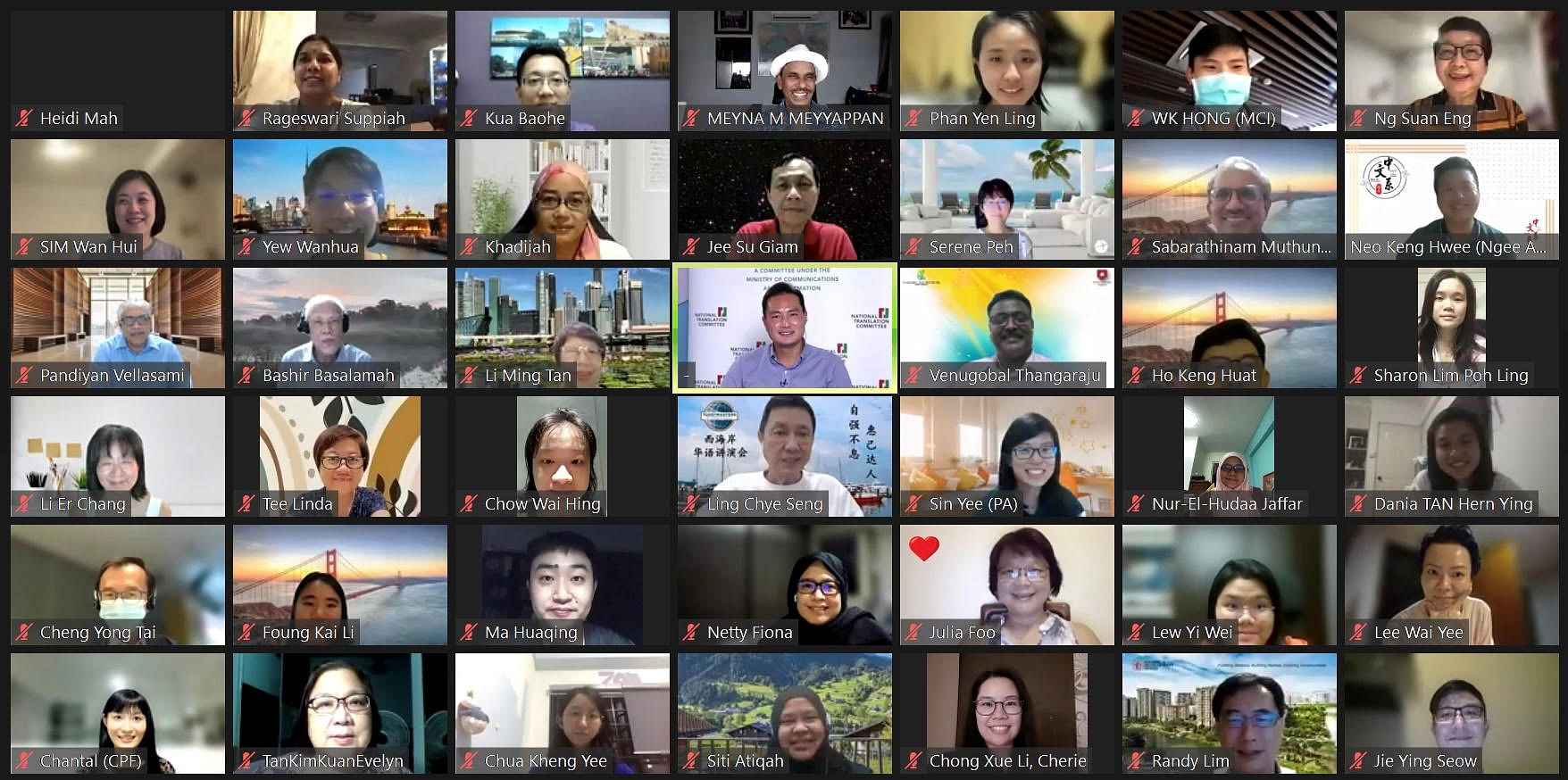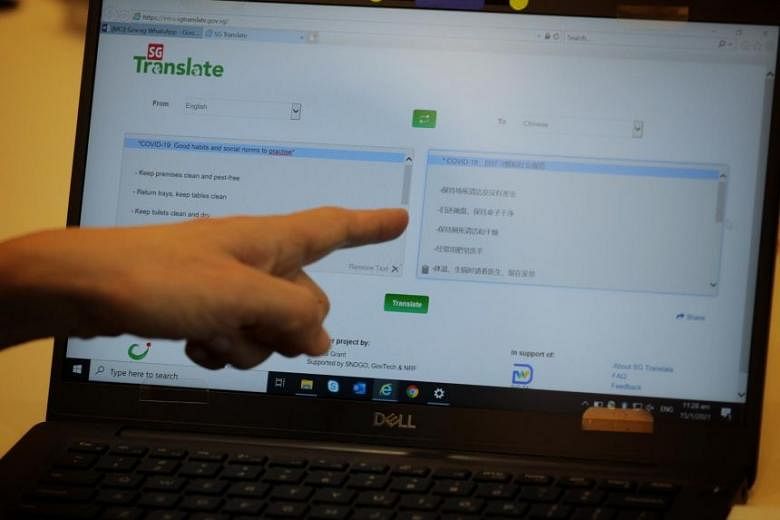SINGAPORE - Nearly 800 people - from secondary school students to seniors - have pitched in on a national initiative to improve the translation of government communication materials.
Through the Citizen Translators project, they can flag errors and provide suggestions to refine translations.
In July, they gave more than 600 pieces of feedback about the TraceTogether token collection website that were forwarded to the Smart Nation and Digital Government Office, said Minister of State for Communications and Information Tan Kiat How at a virtual dialogue on Wednesday (Nov 10).
A recognition and training framework for the initiative was also announced by Mr Tan, who is chairman of the National Translation Committee.
The two-tier framework promotes more frequent involvement by recognising the citizen translators based on their level of contribution, said the Ministry of Communications and Information (MCI).
From next year, those involved in at least five translation-related activities for the year will get e-vouchers under the enhanced tier.
These activities comprise attending a dialogue, taking part in a contest, participating in a feedback exercise or reporting translation errors in government communication materials.
Under the basic tier, participants of any three activities this year will receive an e-certificate.
To get an e-certificate under the basic tier from next year, however, the three activities must include at least one dialogue and one feedback exercise.
Those on the basic tier for three consecutive years will be eligible for the enhanced tier, where they can apply for subsidies to attend translation courses or take translation-related certification.
By March next year, all citizen translators will get to vet and proofread communication materials using the SG Translate Together Web portal, said Mr Tan.
They will take a shot at refining text from translation engine SG Translate, developed by the authorities to produce first-cut efforts.
Currently, citizen translators comprise about 660 Chinese speakers, around 60 Malay and about 50 Tamil.
So far, they have been involved in a pilot project with the People's Association to review translations of materials such as posters at Kampong Chai Chee in Bedok and Kreta Ayer-Kim Seng in Chinatown, said Mr Tan.
Wednesday's engagement session was attended by about 180 citizen translators and potential ones.

Three Tamil-speaking participants called for more standardisation of translated terms across media outlets.
National University of Singapore neuroscience PhD student Sharmelee Selvaraji, 26, noted that consensus is important for the continuity of translated terms since there are variations in a way a word can be interpreted, especially in Tamil.
Responding to questions, Mr Tan said the resource panels for Chinese, Malay and Tamil have been working to standardise terms and invited the citizen translators to inform MCI about any they think are inaccurately translated.
He added that a database contains more than 10,000 government policy-related terms translated into four official languages.
Those interested in participating in the Citizen Translators project can sign up at this website.
The initiative comes amid a nationwide effort to strengthen government communication across languages, with the National Translation Committee formed in 2014.
Over the past two months, MCI and the Education Ministry have co-organised three workshops for teachers to engage students through translations in mother tongue languages.
This year, nearly 190 teachers from more than 80 schools participated in these inaugural workshops.
The Malay and Tamil translation workshops were held for secondary school teachers while the Chinese translation workshop was conducted for primary school teachers.


